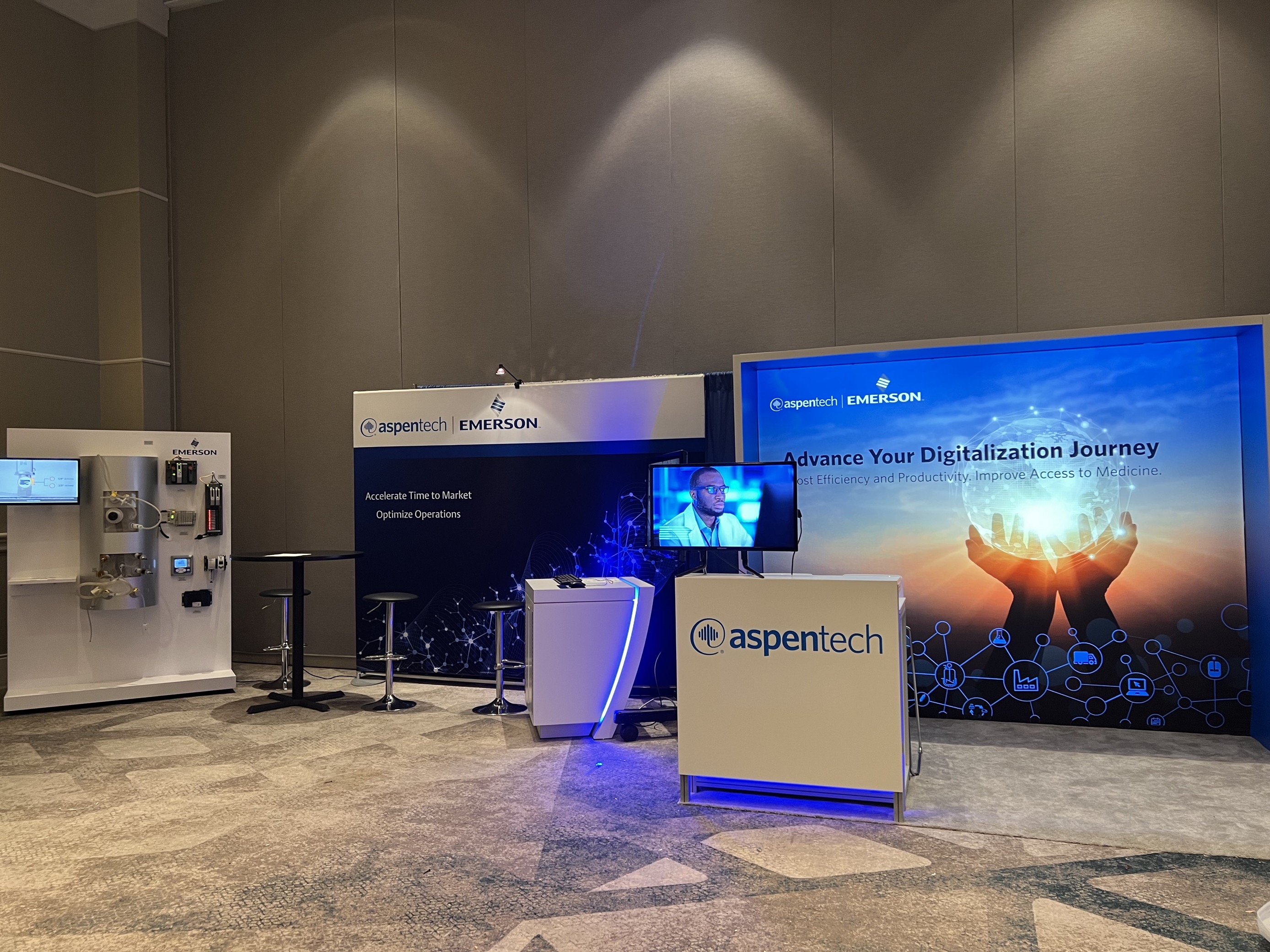The IFPAC Conference has long been one of the go-to events in process analytical technology. However, this year’s conference involved a bit of a pivot from previous years. Not only was this the first opportunity to share the synergies of AspenTech and Emerson via co-presented talks and side-by-side booths, but I also found it to be very engaging and motivating around the topic of digitalization.
For some time now, even before the COVID-19 crisis lit a fire under the pharmaceutical industry, we’ve been hearing about the impending digital transformation that was to bring forth step change improvements in efficiency and productivity in medicines manufacturing. Back then, one could understand the cynic’s viewpoint, given the industry’s “fast to be second” culture and the challenges around data integrity, data security and regulatory compliance. However, IFPAC-2023 convinced even this perpetual skeptic that the digitalization train has now arrived, and it’s time to get onboard or be left behind.
How do I know this? Well, not to be dismissive of visionaries, but I found that this year’s conference was lighter on the high-level fluff and heavier on addressing the low-level “nuts-and-bolts” challenges to realizing true transformational change. This is reflected in several of the presentation titles, including one of my favorites: “Contextualization of experimental data in CMC - From abstract Ontology to concrete data consumption.” On the solution side, there were several presentations that shared tangible custom-made and commercial solutions for “freeing the OT data from their silos,” including AspenTech Inmation™ which empowers digitalization with speed and at scale.
 |
 |
Not only were many of the technical details of these digitalization solutions shared, but much was also discussed about the personnel and project management challenges of designing, commissioning, validating and managing such systems. This recognizes the difficult, often messy, challenges associated with accommodating a very diverse range of digitalization stakeholders, spanning the C-suite to process SMEs to IT functions and beyond.
I also want to submit as evidence my new word-of-the-day: “Ontology.” This term was only recently appropriated from philosophy by computer scientists and it defines the different types of data objects that exist for a given scenario, along with the relationships between them. For many years, data consumers have force-fitted data into linear or tabular structures, often to the detriment of analytical efficiency. Having an ontological map of your data landscape provides a more relevant and flexible structure from which a consumer can more easily find relationships and answer questions from their data. This in turn speeds progress along the data – information – knowledge – wisdom (DIKW) journey. While ontology has been a popular concept for making information queries more accessible across the web, it is becoming increasingly present in the lexicons of both digital solution providers and consumers of pharma operations data. To me this demonstrates a sincere effort to develop real systems that cater to the unique challenges of pharma R&D and manufacturing across all of the various modalities (cell and gene therapy, biologics, vaccines, solid dosage, etc.) rather than just an effort to impress your friends at parties.

Finally, a sincere embracing of transformational change requires full appreciation of the stakes involved with not making this change. In this case, I submit a lively discussion at the conference regarding the need to address the “toils of the data scientist.” It has long been recognized that data scientists spend around 80% of their time preparing data for analysis versus actually analyzing it1. In fact, this has been an ongoing challenge for data scientists and chemometricians for 30 years or more, reflecting a stunning lack of progress in data pipeline solutions despite all the software and computing advances over those decades. Recalling that it is data scientists who are on the hook to provide the means of leveraging data-driven models to support digital transformation (“Industrial AI”), a sincere attempt to finally improve data accessibility indicates a genuine initiative for sustainable digital transformation. It is also proof positive that a solution like Inmation, which addresses these challenges, is very timely.
Reflecting on the above experiences at IFPAC-2023, it is clear to me that the train has arrived at the station and it’s time to get onboard. To engage further, join our experts as they discuss how the AspenTech/Emerson partnership redefines digitalization for the drug development and product lifecycle.
References:
- Why do industrial enterprises need a data lake? Amazon Web Services, Inc or its affiliates (2020). Page 4.
.svg?la=en&hash=2206562C4FBF900A992CF6E5370C3421)




Leave A Comment